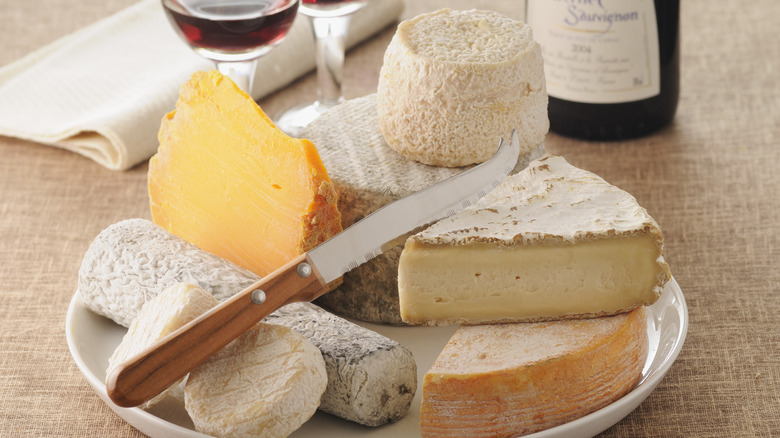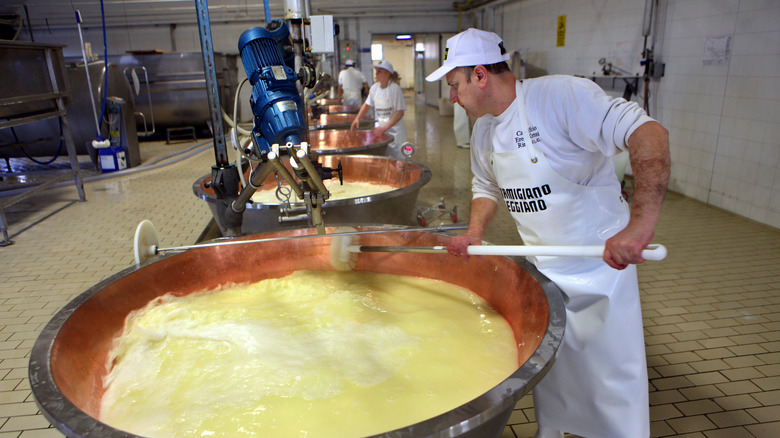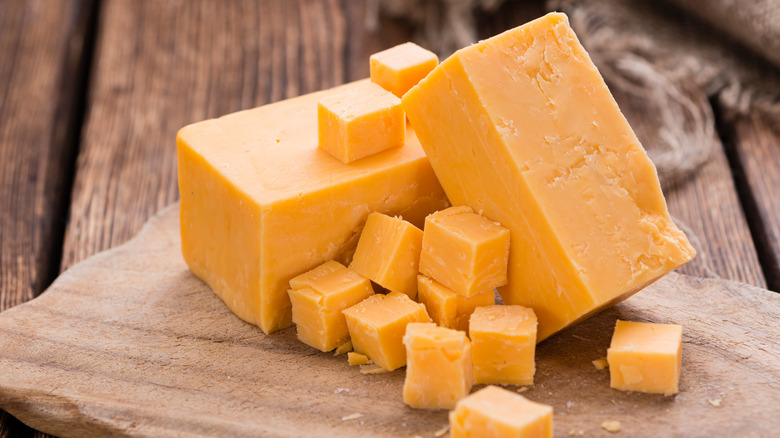The Need-To-Know Reason Why French Cheese Isn't Actually Vegetarian
France: land of fine wine, lovers, and, of course, cheese. No matter what the Italians say, French cheese has a strong case for the finest in the world, and many of your favorite cheeses almost certainly originate in France. This includes soft cheeses like brie, camembert, and muenster (which sounds German, but is actually from Lorraine), and hard cheeses such as Roquefort, emmental, and comté. Chances are, several of the cheeses you've had in the last month originated in the land of fromage.
And unless you're lactose intolerant, you probably love cheese. Who doesn't? It's a wonderful component in salads, sandwiches, soups — or heck, just eat it as a snack straight-up or on some crackers. It's also one of the few foods that unifies disparate cultures across the globe, a culinary component found everywhere from South America to Asia to the Middle East. The best part is it's totally vegetarian, right? Yeah ... about that.
A lot of French cheese is not vegetarian
The problem here is rennet, as Formaggio Kitchen explains. A key component of the cheesemaking process, rennet is an animal enzyme found in the stomachs of young ruminant mammals — animals like cows, deer, moose, giraffes, etc. Granted, if someone is using giraffe rennet to make cheese, that raises a lot more questions, including but not limited to "wait, what?" and "where can I buy giraffe cheese?" Unfortunately, the answer to the second question is "you can't, plus giraffes are a threatened species."
So no, the rennet used for your more mundane cheese sorcery is not typically harvested from exotic sources, but from calves, lambs, or kids. The key takeaway here, though, is that rennet is by nature not vegetarian since it can't be harvested without killing the animal in question. As for how rennet is used in cheesemaking, it's basically used as a coagulant to curdle the casein in milk, separating the curds (milk solids) from whey (the liquids left behind afterwards). Not all cheese endeavors have to involve rennet — there are other methods of cheesemaking like lactic fermentation — but rennet is frequently a necessary component in the process.
So, is all cheese actually not vegetarian?
If rennet is necessary for making cheese, you might be wondering if that means all your favorite curd-based dishes are in fact inherently carnivorous. Worry not, herbivorous Wisconsinites and poutine-loving Canadians, you're actually safe. Cheesemakers in countries other than France typically use microbial rennet from sources such as fungi or vegetables to coagulate cheese, in part due to concerns over this specific issue and in part due to the fact using alternate sources of rennet is cheaper.
But France has elected to make things slightly more difficult. It's not just that the French prefer animal rennet, they actually require it. Cheese expert and educator Susan Sturman told Food52 that official AOP cheeses must include animal rennet, and a lot of vegetarian rennets are actually banned in France even for non-AOP cheeses. Even some cheeses produced through lactic fermentation aren't safe, since French cheesemongers sometimes kick off the fermentation process by adding animal rennet. So if you're vacationing in France any time soon and you love cheese, go nuts — but be well aware that what you're eating isn't technically animal-friendly.


